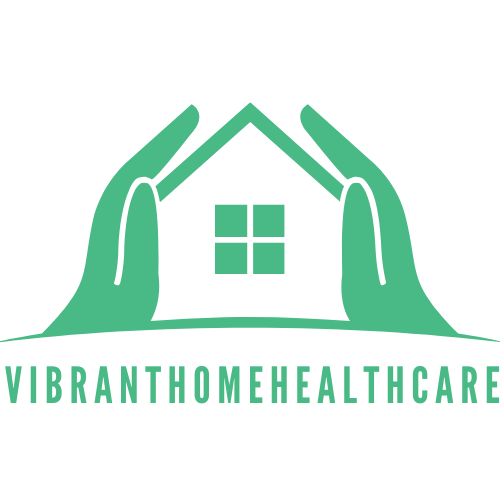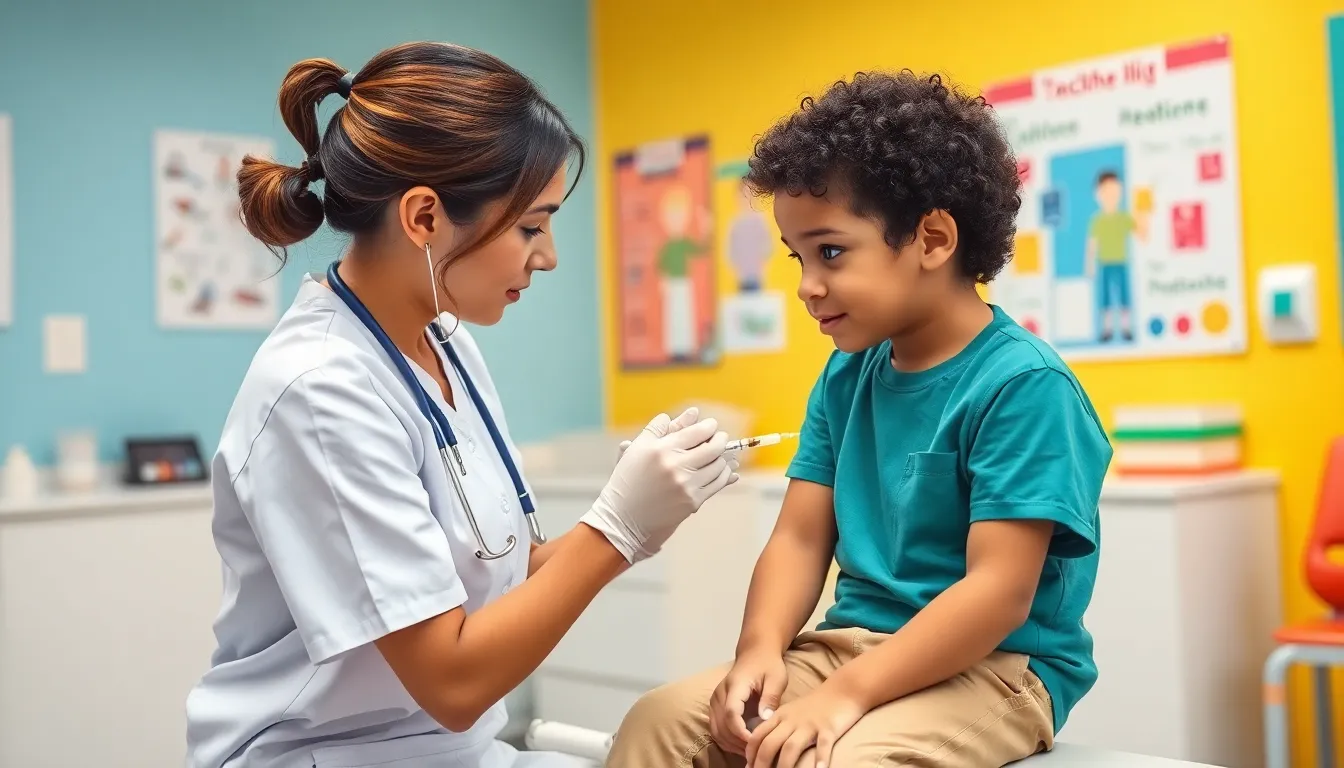In today’s fast-paced world, the approach to healthcare is shifting from reactive to proactive. Proactive healthcare emphasizes prevention, early detection, and lifestyle management, allowing individuals to take control of their health before issues arise. This forward-thinking model not only improves quality of life but also reduces the burden on healthcare systems.
By prioritizing regular check-ups, screenings, and healthy habits, people can significantly lower their risk of chronic diseases. Embracing proactive healthcare means making informed choices that lead to better long-term outcomes. As awareness grows, more individuals are recognizing the importance of being active participants in their health journey.
Table of Contents
ToggleUnderstanding Proactive Healthcare
Proactive healthcare focuses on prevention and early intervention to enhance individual well-being. This paradigm shifts from treating illnesses to maintaining health through informed lifestyle choices.
Definition and Principles
Proactive healthcare emphasizes preventive measures rather than reactive treatments. Key principles include:
- Preventive Care: Engaging in regular check-ups to identify potential health issues early.
- Health Education: Providing information on risks and management of health conditions.
- Risk Assessment: Analyzing personal and family health histories to determine potential health risks.
- Lifestyle Modifications: Encouraging exercises, balanced nutrition, and mental well-being practices.
- Patient Empowerment: Equipping individuals with tools and knowledge to manage their health effectively.
Importance of Proactive Healthcare
Proactive healthcare plays a crucial role in enhancing overall health outcomes. Its importance includes:
- Chronic Disease Management: Reducing the prevalence of chronic diseases through early detection.
- Cost Savings: Lower healthcare costs due to fewer emergency interventions and hospitalizations.
- Quality of Life Improvement: Enhancing day-to-day living through healthier choices and preventive measures.
- Informed Decision-Making: Enabling individuals to make educated choices regarding their health.
- Community Health Enhancement: Increasing overall public health by reducing disease transmission and complications.
Proactive healthcare fosters a health-conscious society, allowing individuals to prioritize their well-being and make lasting improvements.
Benefits of Proactive Healthcare

Proactive healthcare offers numerous benefits that enhance individual and community well-being. Each benefit contributes to a healthier society and improved quality of life.
Improved Patient Outcomes
Improved patient outcomes arise from proactive healthcare practices. Early detection of health issues allows for timely interventions, significantly reducing the severity of conditions. Regular screenings and preventive measures lead to higher recovery rates and lower incidences of advanced diseases. Studies show that patients engaged in proactive healthcare experience 30% fewer hospitalizations related to preventable conditions. Additionally, health education empowers individuals to manage chronic illnesses more effectively, leading to overall better health.
Cost-Effectiveness
Cost-effectiveness is a vital advantage of proactive healthcare. Investing in preventive measures, such as vaccinations and regular check-ups, reduces the long-term costs associated with treating chronic diseases. According to the Centers for Disease Control and Prevention (CDC), every dollar spent on immunizations saves an average of $3 in direct healthcare costs. Organizations that prioritize proactive healthcare can also alleviate the financial strain on healthcare systems, enabling more efficient allocation of resources. By focusing on prevention, individuals can avoid expensive treatments and hospitalizations, ultimately leading to significant financial savings.
Implementing Proactive Healthcare
Implementing proactive healthcare involves strategic approaches that enhance individual well-being while reducing overall healthcare costs. The focus shifts toward prevention, empowering individuals to take charge of their health.
Strategies for Healthcare Providers
- Conduct Regular Screenings: Healthcare providers schedule routine screenings for conditions like hypertension and diabetes. These screenings enable early detection and intervention.
- Promote Health Education: Offering educational resources on nutrition, exercise, and chronic disease management empowers patients to make informed decisions.
- Create Personalized Care Plans: Providers design individualized health plans based on risk assessments and lifestyle preferences, ensuring tailored preventive measures.
- Encourage Patient Engagement: Providers involve patients in their care through shared decision-making. Active participation leads to better adherence to treatment and healthier choices.
- Utilize Community Resources: Connecting patients with community programs that focus on fitness, nutrition, and mental health enhances support networks for healthier lifestyles.
Role of Technology in Proactive Healthcare
- Wearable Devices: Wearables track vital signs and physical activity levels, providing users with real-time health data. This information fosters awareness and encourages proactive adjustments to lifestyle.
- Telemedicine Services: Telehealth platforms enable timely consultations and follow-ups, reducing barriers to accessing healthcare. Patients receive advice without needing an in-person visit.
- Mobile Health Applications: Health apps facilitate appointment scheduling, medication reminders, and health tracking. These tools engage patients actively in managing their health.
- Data Analytics: Healthcare providers utilize predictive analytics to identify at-risk populations. Targeted interventions can reduce disease prevalence.
- Electronic Health Records (EHRs): EHRs streamline patient information sharing among providers, improving coordinated care and ensuring continuity in proactive health management.
Challenges in Proactive Healthcare
Proactive healthcare faces several challenges that can hinder its effectiveness and widespread adoption. Understanding these obstacles is crucial for improving health outcomes and enhancing patient engagement.
Barriers to Adoption
Barriers to adoption of proactive healthcare include financial constraints, lack of access to services, and limited awareness.
- Financial constraints: Individuals often face high out-of-pocket costs for preventive measures, discouraging them from seeking regular check-ups and screenings.
- Lack of access: Rural areas may lack healthcare facilities or providers that emphasize proactive approaches. This limited access results in fewer opportunities for individuals to engage in preventive care.
- Limited awareness: Many people remain unaware of the benefits of proactive healthcare, leading to a reliance on reactive measures. Education about proactive practices is essential for fostering interest and participation.
Addressing Patient Resistance
Addressing patient resistance involves recognizing and mitigating concerns that prevent engagement in proactive healthcare.
- Fear of outcomes: Patients may fear potential diagnoses from screenings, leading them to avoid proactive measures. Providing clear information about the benefits of early detection can alleviate these worries.
- Perceived inconvenience: Many individuals view regular check-ups as time-consuming. Highlighting the long-term efficiency and health benefits associated with proactive care can encourage participation.
- Cultural factors: Cultural beliefs and attitudes may influence individuals’ willingness to engage in preventive healthcare. Tailoring communication and outreach strategies to respect and acknowledge these differences can foster greater acceptance and participation.
Future of Proactive Healthcare
Proactive healthcare is on a trajectory for significant evolution. Emerging trends and innovations promise to enhance preventive care, making health management more accessible and efficient.
Emerging Trends
- Artificial Intelligence (AI): AI tools analyze patient data to predict health risks, enabling earlier interventions. Algorithms can identify patterns in large datasets, allowing for tailored preventive strategies based on individual health profiles.
- Telehealth Expansion: Telehealth services increase access to healthcare professionals, breaking geographical barriers. Patients can receive preventive care and health consultations from home, making it easier to engage in proactive health management.
- Personalized Medicine: Advances in genomics allow for customized health plans tailored to genetic profiles. This approach ensures that preventive measures align closely with individual risk factors and predispositions.
- Wearable Technology: Smart devices continuously monitor health metrics, providing real-time feedback. Users can track physical activity, heart rate, and other vital signs, promoting informed decision-making regarding lifestyle adjustments.
- Integrated Care Models: Collaborative care approaches combine various healthcare services, fostering holistic health management. This integration improves communication among providers, resulting in streamlined preventive care.
Potential Impact on Healthcare Systems
- Cost Reduction: Proactive healthcare can significantly lower healthcare costs by minimizing the incidence of chronic diseases. Timely interventions lead to fewer hospital admissions and decreased emergency care expenses.
- Resource Optimization: By focusing on prevention, healthcare systems can allocate resources more effectively. Reduced demand for reactive treatments allows for enhanced investment in preventive measures and community health initiatives.
- Population Health Improvement: Proactive healthcare initiatives can enhance overall population health. Improved health outcomes reduce the prevalence of chronic conditions, contributing to a healthier society.
- Increased Patient Engagement: Proactive strategies encourage individuals to take ownership of their health. Higher patient engagement results in better compliance with preventive measures, enhancing health system effectiveness.
- Health Equity Advancement: Initiatives aimed at reaching underserved populations can bridge healthcare disparities. Improved access to proactive care promotes equitable health outcomes for diverse communities.
Proactive healthcare represents a pivotal shift in how individuals approach their well-being. By emphasizing prevention and early intervention, it empowers people to take charge of their health. This approach not only enhances quality of life but also alleviates pressure on healthcare systems.
As technology evolves and awareness grows, the potential for proactive healthcare continues to expand. Individuals are encouraged to embrace regular screenings and healthy lifestyle choices. Addressing barriers and fostering acceptance will be crucial in making proactive healthcare a standard practice.
Ultimately, the journey toward a healthier society is a collective effort. With commitment and the right resources, proactive healthcare can lead to a brighter, healthier future for all.




